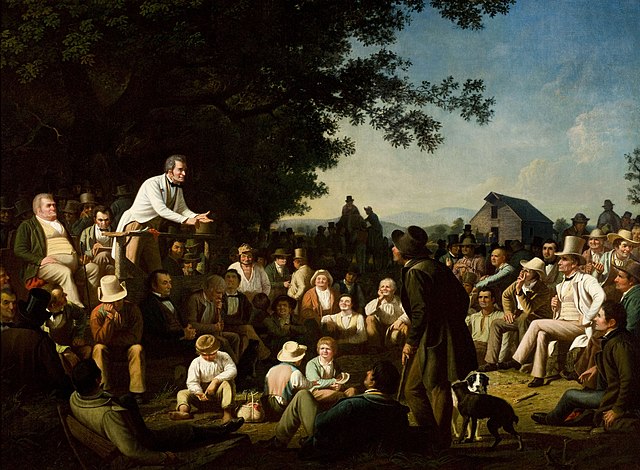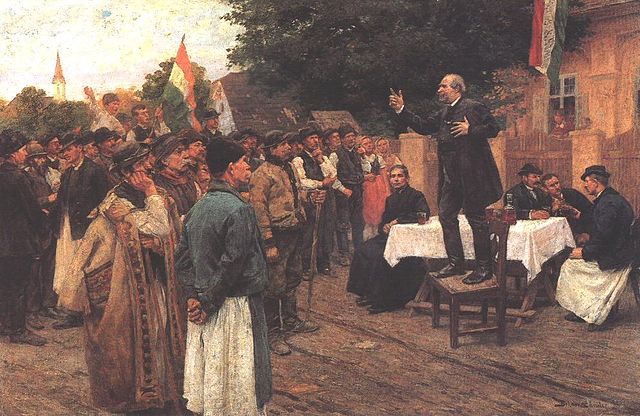
The Thammasat University Library has newly acquired a book that should be useful for students of history, literature, political science, philosophy, and related fields.
The Art of Great Speeches: And Why We Remember Them discusses questions of how to communicate with others. The author is Dennis Glover, a professional speechwriter in Australia who earned a PhD degree in history at Cambridge University, the United Kingdom.
The TU Library also owns a number of other books about writing and delivering speeches.
Featuring excerpts from 70 renowned speeches, this book analyses the art of oratory. The noun oratory refers to the art or practice of formal speaking in public. It is the same as public speaking or speech-making. The term oratory derives from a Latin term meaning a speaker or someone who argues for a cause.
The Art of Great Speeches examines rhetorical techniques that make some speeches memorable.
The noun rhetoric means the art of effective or persuasive speaking or writing, especially the use of figures of speech and other compositional techniques. It is related to such terms as oratory and command of language. The noun rhetoric originates with an Ancient Greek term meaning a speaker, master speaker, or public orator.
By considering how speechwriters try to persuade audiences, we may develop our own skills of writing and speaking.
The Art of Great Speeches is shelved in the General Stacks of the Puey Ungphakorn Library, Rangsit campus.
One of the examples cited by Dennis Glover is Winston Churchill (1874 –1965) a British politician and writer. Churchill was Prime Minister of the United Kingdom from 1940 to 1945, when he led the country to victory in the Second World War, and again from 1951 to 1955. Widely considered one of the 20th century’s most significant figures, Churchill remains popular in the UK and Western world, where he is seen as a victorious wartime leader who played an important role in defending Europe’s liberal democracy from the spread of fascism. Also praised as a social reformer and writer, among his many awards was the Nobel Prize in Literature.
The TU Library collection includes several books by and about Winston Churchill.
Among the speeeches cited are those given in 1940 and 1941, during the Second World War, to the pupils of a school he formerly attended, Harrow.
Harrow School is an independent school for boys in Harrow, London, England. The School was founded in 1572 and among its graduates was not only Churchill, but also Jawaharlal Nehru, former Prime Minister of India.
The TU Library also owns a number of books by and about Nehru.
Some TU students may be familiar with Harrow International School Bangkok, a British international school in Don Mueang District, Bangkok. It was established and gained its license to operate in Thailand in 1998 in association with Harrow School.
In 1941, Churchill told the pupils of Harrow:
Never give in — never, never, never, never, in nothing great or small, large or petty, never give in except to convictions of honour and good sense. Never yield to force; never yield to the apparently overwhelming might of the enemy… When this war is won by this nation, as it surely will be, it must be one of our aims to work to establish a state of society where the advantage and privileges which hitherto have been enjoyed only by the few shall be far more widely shared by the many and the youth of the nation as a whole.
In a radio broadcast in November 1939, Churchill told the British people:
The whole world is against Hitler and Hitlerism. Men of every race and clime feel that this monstrous apparition stands between them and the forward move which is their due, and for which the age is ripe. Even in Germany itself there are millions who stand aloof from the seething mass of criminality and corruption constituted by the Nazi Party machine. Let them take courage amid perplexities and perils, for it may well be that the final extinction of a baleful domination will pave the way to a broader solidarity of all the men in all the lands than we could ever have planned if we had not marched together through the fire.

He added in a speech in the House of Commons, after taking office as Prime Minister in May 1940:
I would say to the House, as I said to those who have joined this Government: ‘I have nothing to offer but blood, toil, tears, and sweat.’ We have before us an ordeal of the most grievous kind. We have before us many, many long months of struggle and of suffering. You ask, what is our policy? I will say: It is to wage war, by sea, land and air, with all our might and with all the strength that God can give us: to wage war against a monstrous tyranny, never surpassed in the dark, lamentable catalogue of human crime. That is our policy. You ask, what is our aim? I can answer in one word: It is victory, victory at all costs, victory in spite of all terror, victory, however long and hard the road may be; for without victory, there is no survival.
The following month, in the same place, he stated:
We shall not flag or fail. We shall go on to the end, we shall fight in France, we shall fight on the seas and oceans, we shall fight with growing confidence and growing strength in the air, we shall defend our Island, whatever the cost may be, we shall fight on the beaches, we shall fight on the landing grounds, we shall fight in the fields and in the streets, we shall fight in the hills; we shall never surrender, and even if, which I do not for a moment believe, this Island or a large part of it were subjugated and starving, then our Empire beyond the seas, armed and guarded by the British Fleet, would carry on the struggle, until, in God’s good time, the New World, with all its power and might, steps forth to the rescue and the liberation of the Old.
Two weeks later, he said in the House of Commons:
Upon this battle depends the survival of Christian civilisation. Upon it depends our own British life and the long continuity of our institutions and our Empire. The whole fury and might of the enemy must very soon be turned on us now. Hitler knows that he will have to break us in this island or lose the war. If we can stand up to him, all Europe may be free and the life of the world may move forward into broad, sunlit uplands. But if we fail, then the whole world, including the United States, including all that we have known and cared for, will sink into the abyss of a new Dark Age, made more sinister, and perhaps more protracted, by the lights of perverted science. Let us therefore brace ourselves to our duties, and so bear ourselves that, if the British Empire and its Commonwealth last for a thousand years, men will still say, ‘This was their finest hour.’
TU students might note that some of the most persuasive speeches use short words, and in writing English, it is often better not to use long words to try to make an impression.

(All images courtesy of Wikimedia Commons)
